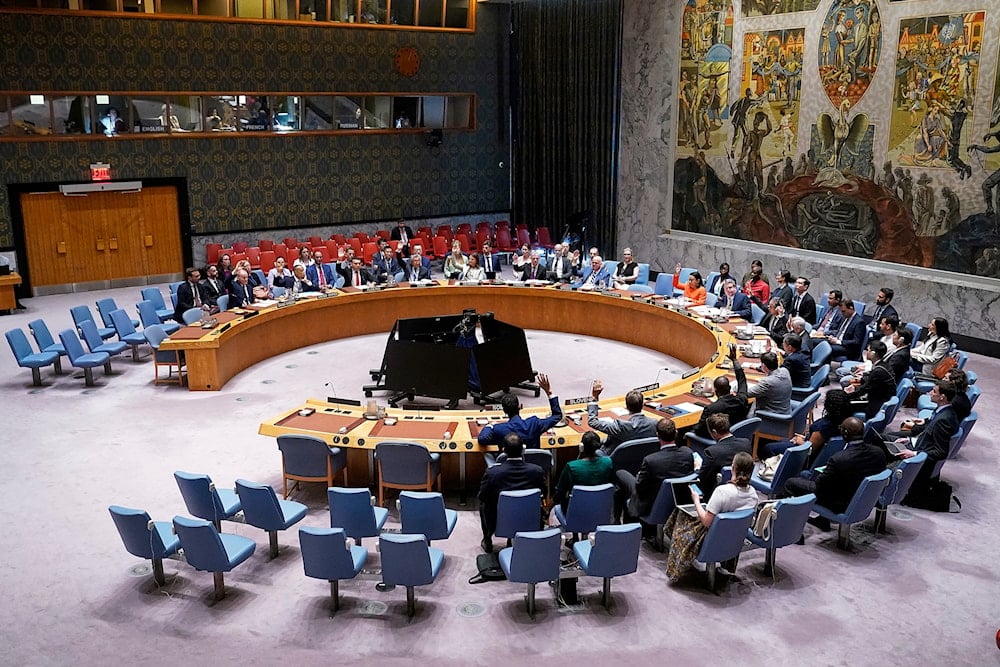Iran's response to 'maximum pressure' will be harsher than ever: Azizi
The chairman of the Iranian Parliament’s National Security and Foreign Policy Commission warns that Iran will respond decisively to any pressure, stressing that dialogue should not be mistaken for weakness.
-

The United Nations Security Council votes on a resolution during a meeting, Monday, June 30, 2025 (AP)
The chairman of the Iranian Parliament’s National Security and Foreign Policy Commission, Ebrahim Azizi, issued a warning that any countries that might exploit Iran’s goodwill for dialogue and instead resort to pressure will consequently face a response that is both tougher and more decisive than ever before.
In a message posted on X, Ebrahim Azizi stated that the so-called “maximum pressure” strategy has never achieved success and will, in this instance, impose even greater costs on both its designers and its executors.
He stated that Iran has consistently upheld the logic of dialogue and constructive engagement; however, certain powers have shut the doors of diplomacy on themselves by choosing pressure and confrontation.
"This mistaken path will not help them reach their goals; instead, it will only deepen their isolation and guarantee their failure," he affirmed.
Azizi emphasized that Iran regards negotiation as a tool of power and not a sign of weakness, adding that the nation will not allow its goodwill to be exploited for excessive demands or for the breaching of commitments, warning that "dialogue is not an endless concession."
Furthermore, he stressed that those who pursue a strategy of pressure must consequently be prepared for a harsher and more decisive response from Iran.
UNSC to impose sanctions on Iran
Azizi's warning was issued following a United Nations Security Council vote that rejected the permanent lifting of economic sanctions on Iran under Resolution 2231, a resolution which failed on Friday with a vote of four in favor to nine against, meaning that the sanctions are set to snap back by September 28 unless a significant deal is reached before that deadline.
This move, which was driven by Britain, France, and Germany, has subsequently sparked sharp criticism from Russia, China, and Iran, thereby highlighting the deepening divisions within the international community over the future of Iran’s peaceful nuclear program.
The three European signatories to the JCPOA called for the activation of the snapback mechanism by falsely claiming that Iran had breached commitments made under the 2015 deal, a deal that was originally designed to prevent Tehran from acquiring nuclear weapons capabilities.
Al Mayadeen's sources warned on Thursday that activating the snapback sanctions mechanism would nullify the Cairo Agreement and end cooperation between the IAEA and Tehran.

 3 Min Read
3 Min Read








